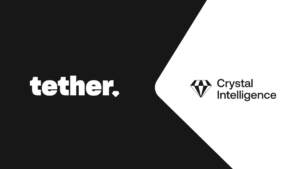The cryptocurrency market in the European Union (EU) experienced significant growth during the year 2023, with almost 1,000 new entities registered. This data, analyzed by DL News’ Europe Crypto Tracker, reveals that by the end of the year, there are at least 11,597 virtual asset service providers (VASPs) registered across the 27 EU member countries.
This increase in the registration of crypto entities comes just one year before some provisions of the EU’s Markets in Crypto-Assets law (MiCA) come into effect in December 2024. MiCA is presented as the first comprehensive regulation for cryptographic assets in the EU, establishing standards for companies offering services to the substantial population of 450 million inhabitants.
EU member states are strategically positioning themselves in anticipation of the implementation of MiCA, competing to attract entrepreneurs from the sector. MiCA will introduce passport rules, allowing companies to operate across the EU if they comply with Brussels’ new regulations. This feature is expected to foster competition among states as they strive to become attractive destinations for companies looking to leverage these passport rules.

Czech Republic and Poland Lead in Crypto Entity Registration
The Czech Republic emerges as a leader in crypto entity registration, with 9,372 registered VASPs. However, it is noteworthy that approximately 83% of the entities registered in the country are individuals rather than companies, which could influence the interpretation of these numbers.
Despite the Czech Republic and Poland leading in the number of registered crypto entities, the implementation of MiCA could bring significant changes. Individuals currently registered as VASPs may face challenges in obtaining a MiCA license, which sets standards in areas such as capital requirements, internal controls, and governance.
Some countries face regulatory challenges, such as the presence of what is termed “letter-box entities,” a concern that MiCA seeks to address. Additionally, it is observed that some countries, such as Estonia, Belgium, Slovakia, and Romania, have a lower number of registered crypto entities, and some do not have established registries.
The growth in entity registration in the EU reflects the ongoing expansion of the market, but the implementation of MiCA could introduce significant changes in the composition and regulation of these entities in the coming years. We will closely monitor how these changes impact the market and stay attentive to future developments.












